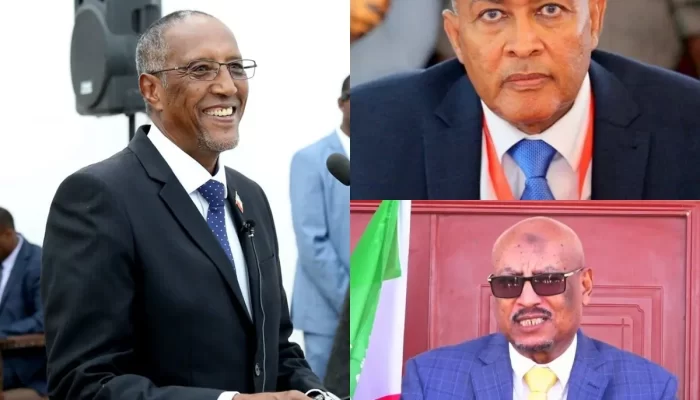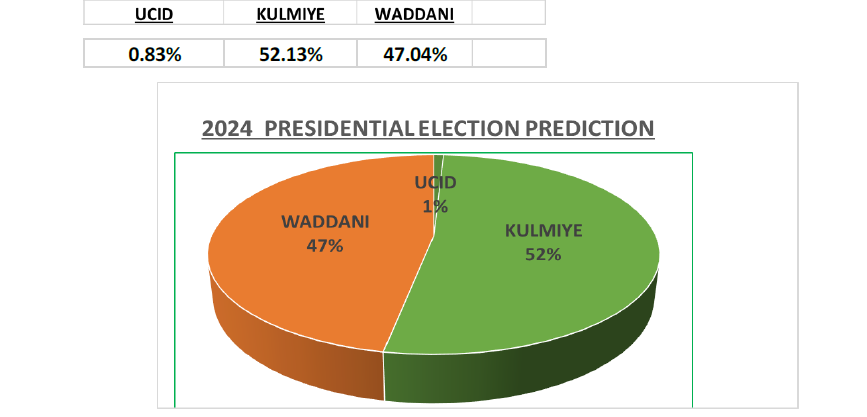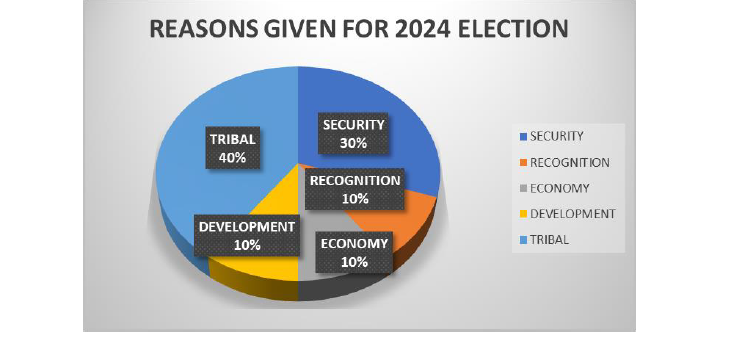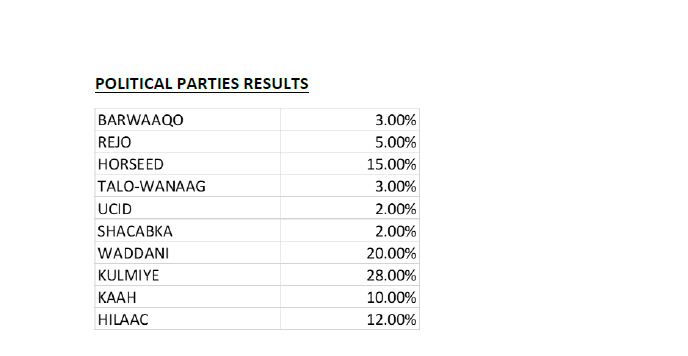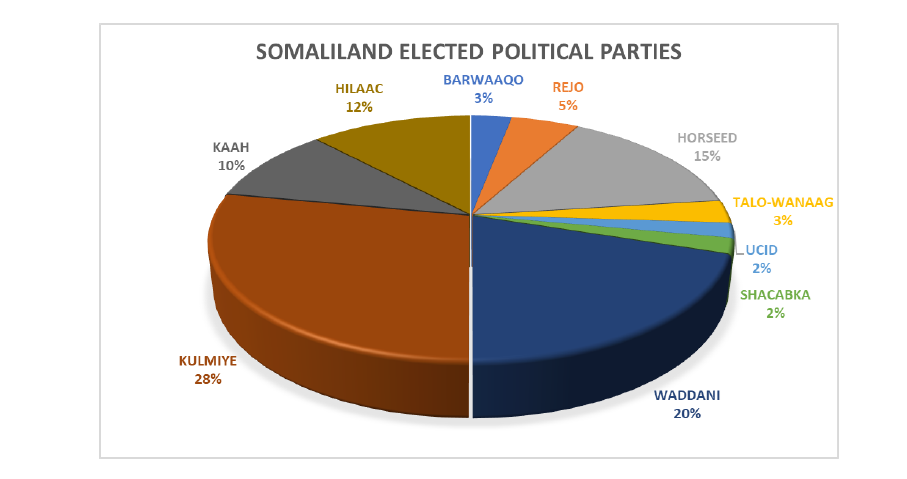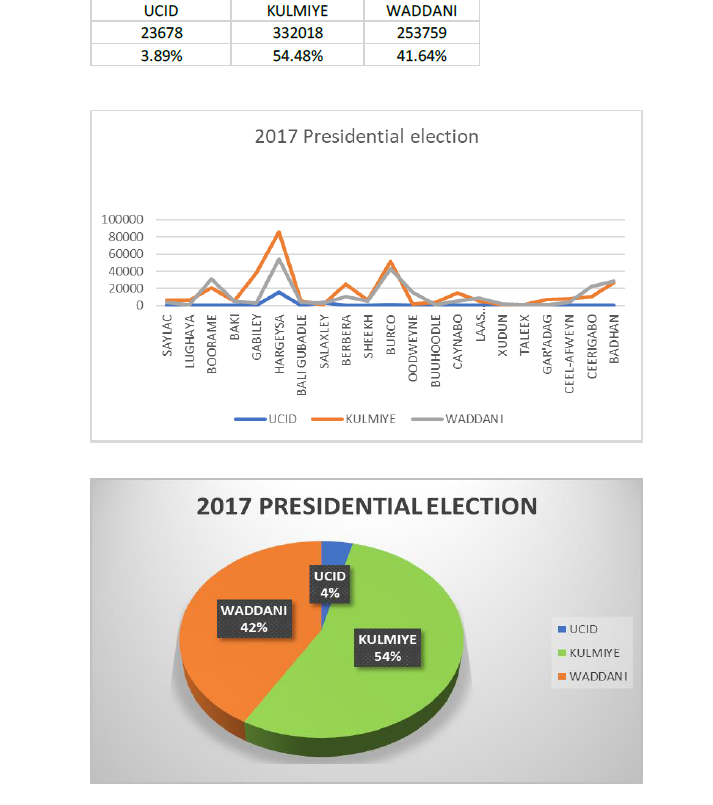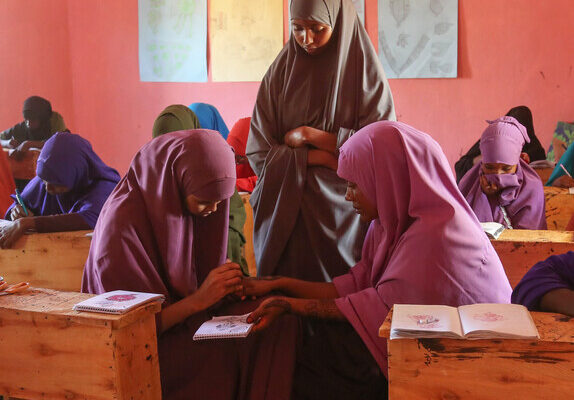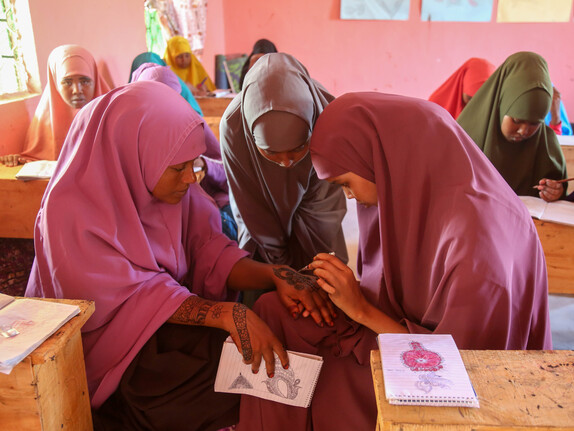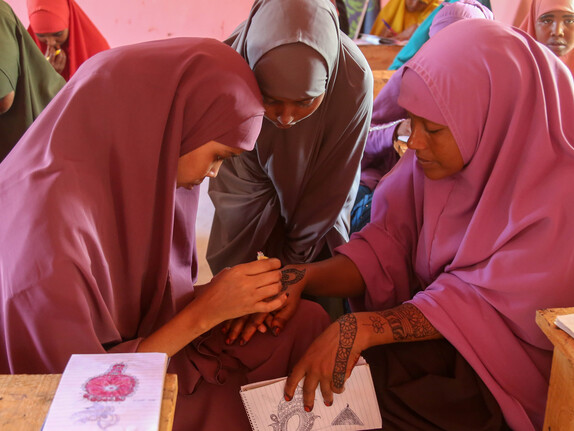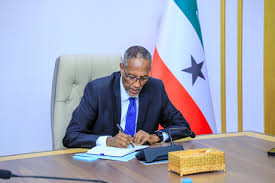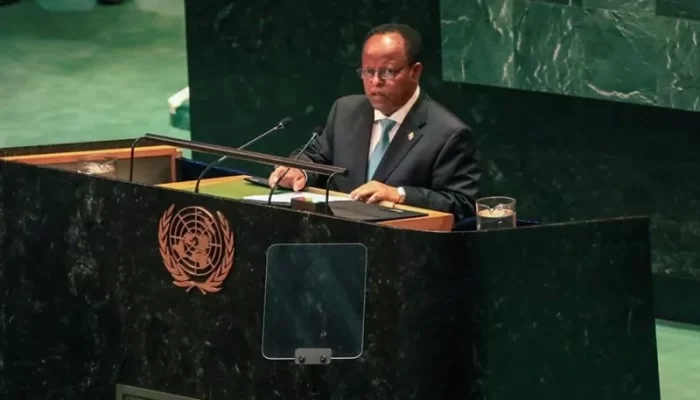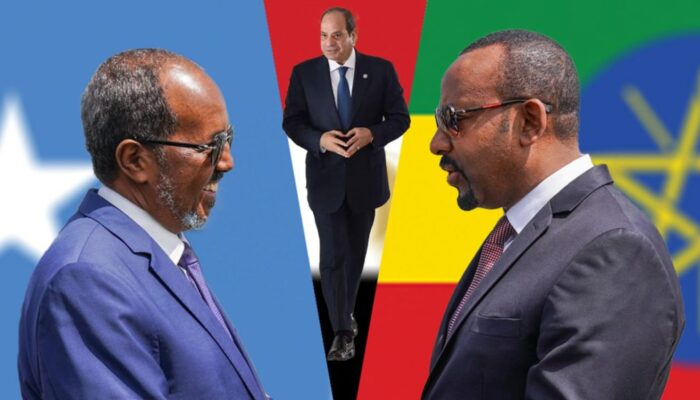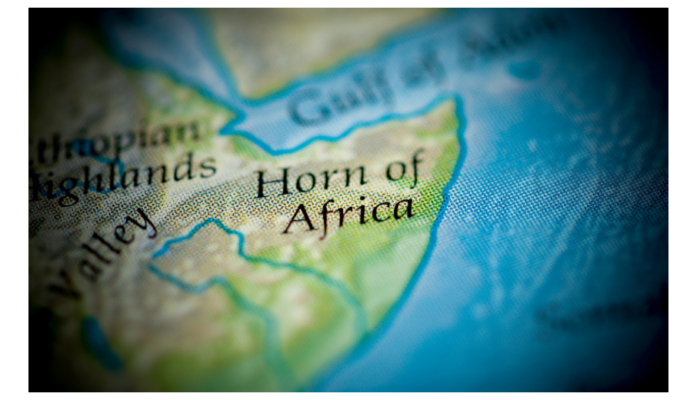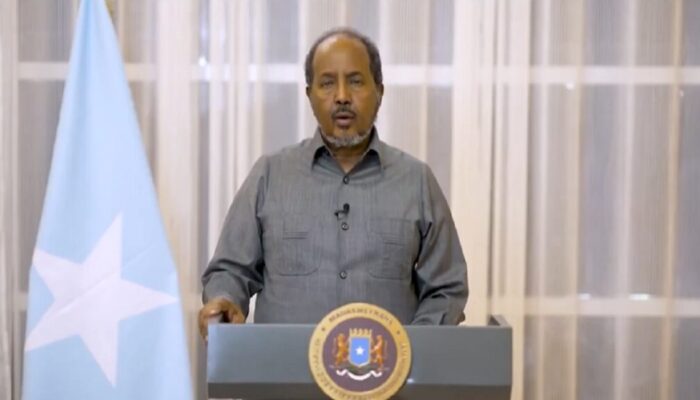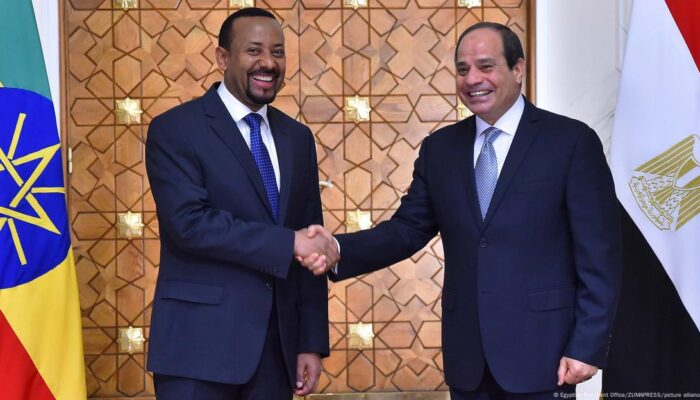Forecasts for the Somaliland Presidential Election Using Electoral Survey Data
According to recent sources and analyses in Somaliland, the following surveyed polls were conducted
to provide Somalilanders with an overview of the upcoming elections scheduled for November
13, 2024. The figures below were modeled research based, proof display held over the past few
weeks, as well as phone interviews with various citizens across all regions of Somaliland. These
numbers are averaged statistical calculations.
Below are 2024 Somaliland Presidential Election that will be held on November 13th, 2024.
Those numbers are estimated, forecast and predicted from analyses in different sources,
educated and open minded in all regions of Somaliland. I’m emphasizing those numbers are
modeled from statistical analyses (mean, median and average calculations).
According to our analyses, this surveyed poll aims to highlight reasons and arguments presented by
supporters:
- UCID – This party is viewed as outdated and fatigued. Chairman Feysal Ali Warabe has
shown little interest and appears unwilling to invest in re-election efforts. UCID is the
oldest of the three existing parties. - Waddani – As the youngest party, Wadani is highly popular. It garnered 42% of the
vote in the 2017 presidential election. Its supporters advocate for change, as the
Kulmiye party has led Somaliland politics for the past 14 years. Analyses and reports
from Somaliland critics reveal that many of Wadani’s leaders previously belonged to
0.83% 52.13% 47.04%, including its chairman Hirsi “Hirsi Gaab,” a former Minister under
Kulmiye’s administration. Critics note that this party maintains strong ties with the central government of Somalia, which still desires Somaliland’s reintegration. Some citizens also recall the genocide perpetrated by the Siad Barre regime during the 1980s war. Wadani has not distanced itself from such associations, leading people to believe that the campaign resources may be coming from the Somali government.
Kulmiye – This party has led Somaliland for the past 14 years and, according to predictions, is expected to secure another term in the November 13, 2024, elections. While its popularity has waned, especially due to issues in Las Anod, its recent slight gains in the polls suggest that the party remains strong on security matters. Additionally, Kulmiye has made strides toward Somaliland’s recognition and sovereignty, particularly through a recent Memorandum of Understanding with Ethiopia.
Reasons Given to Choose a Party
According to our contacts on the ground, most people base their presidential choice on tribal affiliation. Tribalism remains a significant issue in Somaliland, with politicians exploiting it to fuel polarization among citizens. However, the more educated segment of the population, according to our sources, considers factors like security, international recognition, economic growth, and development in making their choices.
Below chart summarizes these findings:
Following are the most popular parties “URUURO” are the following:
- Kulmiye
- Wadani
- Horseed
- Kaah
- Hilaac
According to Article 9 of the Somaliland Constitution, political parties (“Xisbi”) shall not exceed three (3) parties: “1. The political system of the Republic of Somaliland shall be based on peace, cooperation, democracy, and plurality of political parties. 2. The number of political parties in the Republic of Somaliland shall not exceed three (3). 3. A special law shall determine the procedures for the formation of a political party, but it is unlawful for any political party to be based on regionalism or clannism.”
Our research and analysis indicate that the two main parties, Kulmiye and Wadani, will retain their status as “Xusbi.” Horseed, Kaah, and Hilaac will compete for the third position, potentially replacing UCID.
Let’s examine these three “Urur” closely:
- Horseed: Chairman Abdillahi Hussein Dirawal was a member of the SNM group, which fought for Somaliland’s freedom against the regime of Siad Barre (“Afweyne”). The party is popular in the capital, Hargeisa, which has a substantial voter base. It’s noteworthy that both Dirawal and President Muse Bihi were part of the SNM and are well-connected. If Horseed succeeds in becoming a “Xusbi,” it could serve as a strong ally to Kulmiye.
- Kaah: Chairman Mahamoud Hashi Abdi, a former Minister of the Presidency during the Silaanyo administration, leads a party popular in the Burco region. Support for this party is largely clan-based. Critics of Chairman Mahamoud cite allegations of corruption during his tenure with the Silaanyo government, particularly in connection with projects like Hargeisa Airport and the Xuba Weyne irrigation project, as well as various other initiatives. Critics argue that he cannot be trusted.
- Hilaac: Chairman Prof. Ahmed Ismail Samater, a recent returnee from the United States, joined Somaliland politics after a challenging experience in Mogadishu, Somalia. He recently withdrew from the Somaliland elections, citing the exclusion of his party from the presidential race. His recent return to Somaliland has left him with limited time to rebuild trust among supporters, particularly in the Borama region.
In conclusion, based on information gathered from key political figures and influencers in Somaliland, Horseed, led by Chairman Dirawal, has the potential to become the third official party in the upcoming election on November 13, 2024.
SOMALILAND PRESIDENTIAL ELECTION HISTORY:
All figures and data in this report were sourced from the National Election Commission of Somaliland. The first election in Somaliland was held on April 14, 2003, with 488,035 registered voters
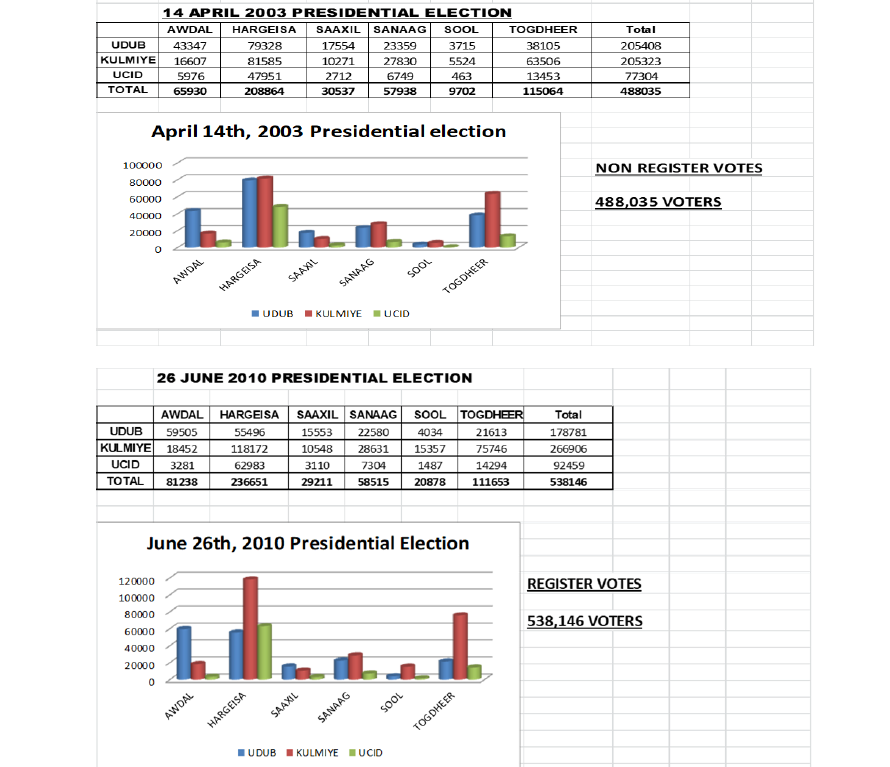
2017 SOMALILAND PRESIDENTIAL ELECTION RESULTS:
What does Somaliland historical data tell us today?
According to the charts above, Somaliland voters have spoken:
- Party UCID is in declined and is getting closer to an elimination in 2024
election. - KULMIYE party is also losing supporters as WADDANI is getting more
popular
Author: Abdulkarim Musse Maygag – Toronto – Canada –
abdulkmu@hotmail.com

